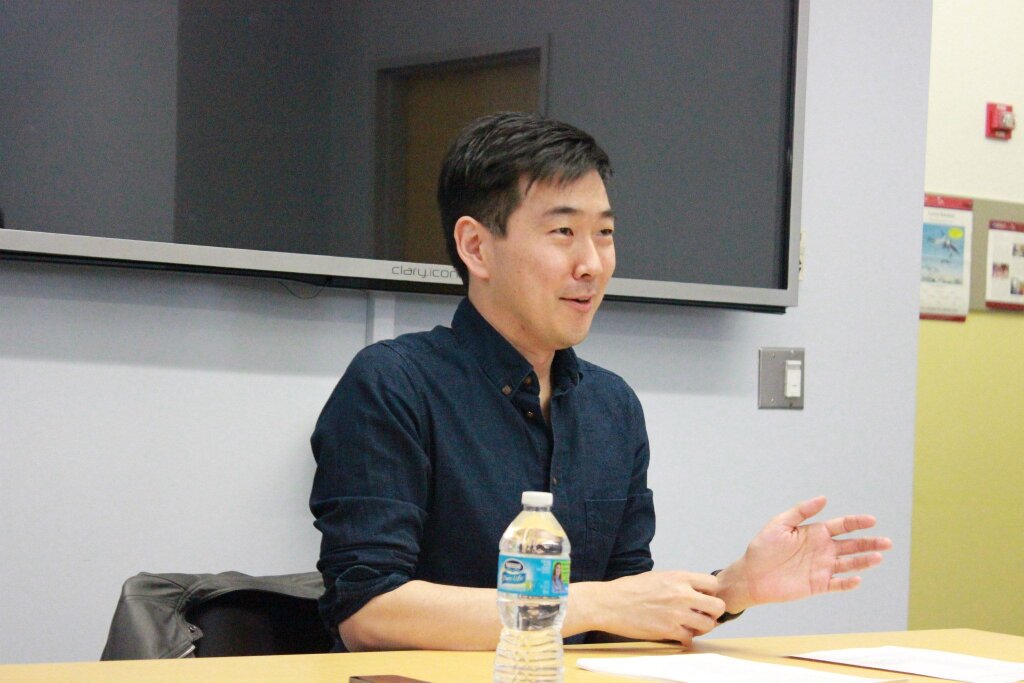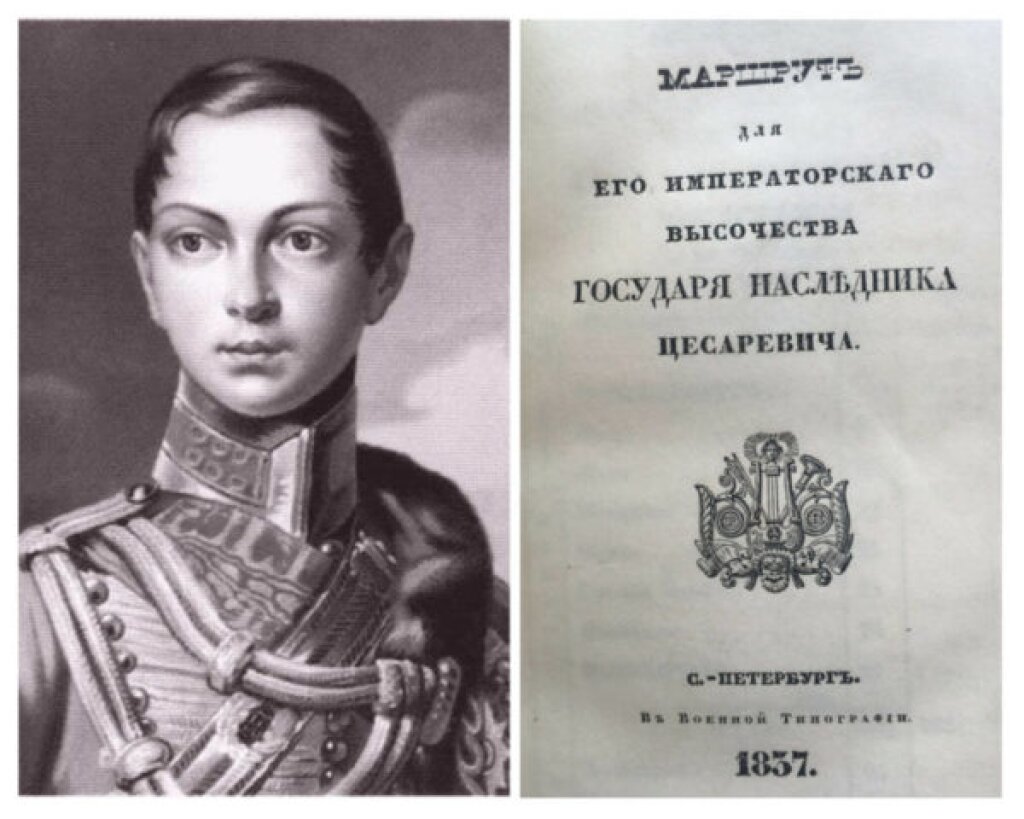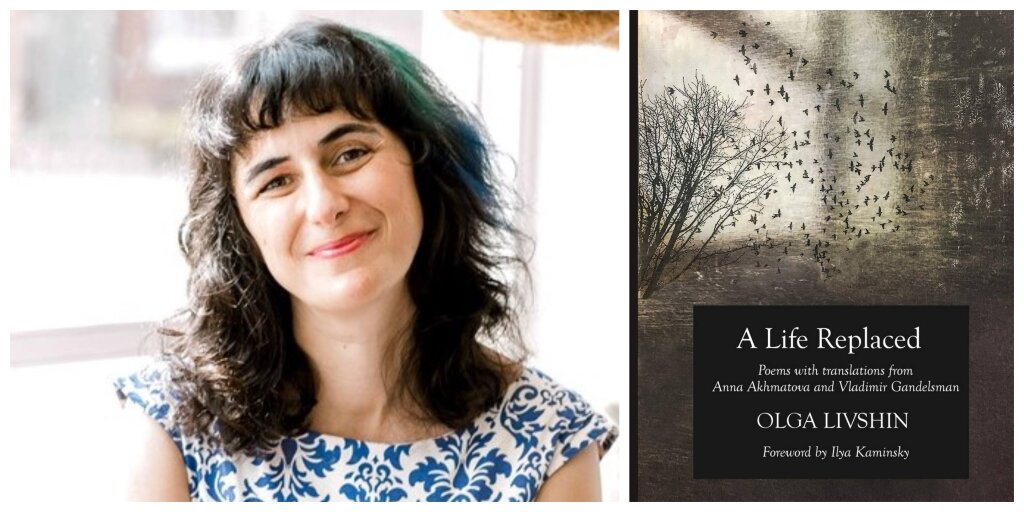On May 15, 2015, the NYU Jordan Center for the Advanced Study of Russia welcomed Michael Kunichika, an Assistant Professor of Russian and Slavic Studies at New York University, for a lecture on modernist world culture as elaborated in the works of the Russian poets Velimir Khlebnikov and Osip Mandelstam.
“In May of 1919, Velimir Khlebnikov wrote seventeen lines that held such value for him that they appeared, unchanged, on multiple occasions in different works,” Kunichika said at the beginning of his talk. The lines he was referring to, beginning with the words “Туда, туда / Где Изанаги (Thither, thither / Where Izanagi),” were later included in such poems as “Azy i uzy” and “Ladomir,” and in his play “Bogi.”
According to Kunichika, the lines have given rise to various debates, both in terms of interpretation and of their significance for Khlebnikov’s poetics. He argued that along with representing "a divine agora,” the cultural visions we find in these lines provide a perfect segway into a discussion on the importance of world culture and world literature in Russian modernism, and, in particular, in the work of Osip Mandelstam, with whom the concept is more frequently associated.
Kunichika focused on whether Khlebnikov’s vision can be compared with Mandelstam’s own cultural vision. He noted that there is a tendency to draw distinctions and antinomies between the two, especially from the geographical point of view; for example, Khlebnikov’s world vision is oriented towards Eurasia, Mandelstam’s towards Europe.
Kunichika also said that he is not the first to link the two authors, even though prior work appears to have focused primarily on subtextual analysis. Allegedly, Mandelstam himself encouraged the establishment of a correlation with Khlebnikov’s work, stating that the poet was “close” to him in an internal sense. Boris Pasternak’s words echoed the sentiment. “I envy your freedom,” the Russian writer said in 1919, as he addressed Mandelstam. “To me you are the new Khlebnikov.” Kunichika highlighted, however, that not everyone took a similar stance: Nadezhda Mandelstam, for example, argued against any parallel between the two.
Nevertheless, he stressed that it is important to establish a parallel between the two authors, in order to both draw distinctions and identify commonalities. As such, while their views of the world might not be compatible, they are comparable. In particular, Kunichika expressed interest in the reasons why Mandelstam felt “close” to Khlebnikov and the meaning of Khlebnikov’s world culture for Mandelstam.
By analyzing Mandelstam’s writings, it is possible to identify the poet’s effort to find a shared affinity with Khlebnikov – namely in their relationship with time. In particular, Kunichika explained how a state of being out-of-sync with their times can be associated with both. Mandelstam describes Khlebnikov as a “citizen of the whole of history” who doesn’t know what a contemporary is, and defines his existential state as one of “non-cotemporaneousness” with the culture of the present. In light of Mandelstam’s inability to feel in sync with the present and his tendency to seek “trans-historical contemporaries” in the likes of Dante and Pindar, Kunichika wondered, could we see Khlebnikov and Mandelstam as contemporaries in their non-contemporaneity?
Subsequently, Kunichika proceeded to illustrate Khlebnikov’s world vision as a “divine agora, a harmonium of colloquy and cultural pursuits,” seeking to restore man’s place in the universe. Furthermore, he noted how Khlebnikov’s ability to move between times and make himself at home in each temporal and spatial dimension could be seen as the source of Mandelstam’s admiration for the poet.
In the second part of his lecture, Kunichika focused on the important connection between world literature and linguistics. For Khlebnikov, language is the medium through which the world is created and unity is achieved. Kunichika discussed the poet’s belief that it is through literary and linguistic syncretism that the tensions among the various peoples of the Russian empire can be resolved. Indeed, it is in the vision of world culture in relation to language and literature that modernists face their biggest challenge, since modernist world culture “was thoroughly conceptualized as a linguistic enterprise.” In particular, Kunichika referred to discourses surrounding translation and etymology, which in Mandelstam and Khlebnikov are central to transcending barriers in time and space.
In the Q&A that followed the lecture, Kunichika answered questions from a distinguished audience, including departmental faculty and graduate students, and visitors such as Professor Emeritus Michael Holquist (Yale University) and Professor Emerita Nina Perlina (Indiana University). Holquist asked whether Khlebnikov and Mandelstam’s work could be instrumentalized in today’s Russia by those promoting Russian as a world language and revisiting Eurasianist thought, such as Aleksandr Dugin. According to Kunichika, their visions could easily be used in this respect, but he also noted how they might not be ideal figures in their cause, given the poets’ problematic position within the nationalist discourse. Other questions touched upon the importance of distinguishing among different archaisms in the works of the two poets, time and consciousness, and the boundaries between philology and theology.



